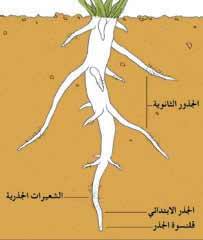Loving my Arabic Roots
 “Loving my Arabic roots” was the geekiest way I could think of addressing the two reasons I love the Arabic language. First, and most obviously, I love the Arabic language because it is the path by which I engage with my own heritage. As a graduate student in the Department of Comparative Literature at UC Davis, I specialize in two languages, both of which were spoken by my great-grandparents, Arabic on my father’s side and Italian on my mother’s. More immediately, my father was born in Bethlehem, Palestine in 1946, and grew up speaking Arabic. Although my parents are bilingual, I grew up in a primarily monolingual household in Sacramento, California. Therefore, I started my love of Arabic relatively late in life on a journey that will likely - or hopefully - span my lifetime. As most native and non-native speakers of Arabic will tell you - typically more out of reverence for the language than self-congratulation - Arabic is a difficult language. However, the term “difficult” seems to do injustice to the incredible logic of the language’s complex grammatical system. It is not difficult due to unpredictability or seemingly accidental forms and rules, but rather due to its indelible and precise structuring which demand diligence and (as previously noted) reverence for Arabic by any who hope to one day (perhaps only on their deathbed) presume “mastery” over the language. I am not a masochist - I do not love Arabic simply because I have spent innumerable hours making and reviewing flashcards, or grammar charts with the language’s ten verbal patterns(al-awzan). I fell in love with Arabic when I was introduced to its root system, al-jidhr, literally meaning root, stem or base. All Semitic languages, such as Arabic, Hebrew and Aramaic, share the unique "triliteral” root system, according to which all words native to the language contain a (typically) three-consonantal root. It is from these roots that all words - verbs, adjectives and nouns - are formed.
“Loving my Arabic roots” was the geekiest way I could think of addressing the two reasons I love the Arabic language. First, and most obviously, I love the Arabic language because it is the path by which I engage with my own heritage. As a graduate student in the Department of Comparative Literature at UC Davis, I specialize in two languages, both of which were spoken by my great-grandparents, Arabic on my father’s side and Italian on my mother’s. More immediately, my father was born in Bethlehem, Palestine in 1946, and grew up speaking Arabic. Although my parents are bilingual, I grew up in a primarily monolingual household in Sacramento, California. Therefore, I started my love of Arabic relatively late in life on a journey that will likely - or hopefully - span my lifetime. As most native and non-native speakers of Arabic will tell you - typically more out of reverence for the language than self-congratulation - Arabic is a difficult language. However, the term “difficult” seems to do injustice to the incredible logic of the language’s complex grammatical system. It is not difficult due to unpredictability or seemingly accidental forms and rules, but rather due to its indelible and precise structuring which demand diligence and (as previously noted) reverence for Arabic by any who hope to one day (perhaps only on their deathbed) presume “mastery” over the language. I am not a masochist - I do not love Arabic simply because I have spent innumerable hours making and reviewing flashcards, or grammar charts with the language’s ten verbal patterns(al-awzan). I fell in love with Arabic when I was introduced to its root system, al-jidhr, literally meaning root, stem or base. All Semitic languages, such as Arabic, Hebrew and Aramaic, share the unique "triliteral” root system, according to which all words native to the language contain a (typically) three-consonantal root. It is from these roots that all words - verbs, adjectives and nouns - are formed.
For example, from the root D-R-S the following words are formed relating to the act of studying:

For example, from the root K-T-B the following words are formed relating to the act of writing:

The root or base of the word is like the seed from which it has grown. As a tree is not identical to its seminal form - which is nonetheless fundamental too it’s character - the jidhr is the foundation from which word meanings grow.
About the Author:
Amanda Batarseh is a graduate student at UC Davis, where she specializes in Arabic and Italian literature. She taught Beginning Arabic at UC Davis for two years, from 2012-2014 and currently teaches the COM 5-7 series in the Department of Comparative Literature. Her most recent research focuses on form in the Palestinian novel.
